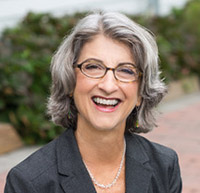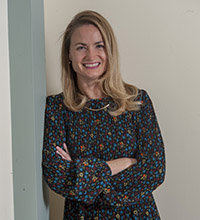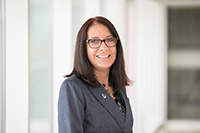F. Diane Barth, LCSW

According to a recent article in Psychology Today, taking back control of your day and agenda is key to alleviating feeling overwhelmed, says an article by Barton Goldsmith, PhD, posted at the Santa Barbara News-Press.
NASW New York City member F. Diane Barth, LCSW, is quoted in the story. She suggests drafting a list of things that are overwhelming you, such as tasks you need to accomplish, goals you’ve set for yourself, and things that worry or distress you.
List-making is a tried-and-true method for organizing your thoughts and getting your fears into perspective. The No. 1 thing on your list should be making an agenda. Barth suggests breaking down your problems into smaller steps to make them easier to accomplish. One minor movement forward is all you need to get started, the article notes.
Nikki Lively, LCSW

Therapists trained in emotion focused therapy (EFT) can help people better identify, understand and regulate their emotions, which can improve well-being and relationships, says an article in Forbes magazine. In EFT, emotion is considered essential to effect change.
NASW-Illinois member Nikki Lively, LCSW, is quoted in the article, saying it is more difficult for people to make decisions when they don’t have access to their emotions.
“When someone is trying to decide, for example, ‘Should I take this job?’ or ‘Should I marry this person?’ It’s a huge disability to not be able to access your emotions to make those decisions,” says Lively, a certified emotionally focused therapist and clinical director of the Transitions to Parenthood program at the Family Institute at Northwestern University in Chicago.
Dawn Apgar, PhD

A social work degree can unlock doors to many different careers geared toward helping others, says NASW New Jersey member Dawn Apgar, PhD, a nationally recognized leader in the profession.
“Some social workers work in small systems, and others in larger ones,” she says in an article posted at Seton Hall University’s News and Events website. “I started my career working with individuals living with disabilities in a group home, where I fought for de-institutionalization and for helping people with disabilities live in their community.”
Apgar is an associate professor in the Department of Sociology, Anthropology, Criminal Justice and Social Work at Seton Hall University.
“I’m doing what I do best: using data to ask difficult questions,” she says in the story. “Are we preparing social workers to do the advocacy work called for by our code of ethics? Is our educational system preparing people properly? I am focused on reshaping the practice, regulation and education of social work.”
Jasmine Cobb, LCSW

Setting boundaries is key to reducing stress and avoiding burnout, says NASW-Texas member Jasmine Cobb, LCSW, who specializes in grief and trauma at Visual Healing Therapeutic Services, PLLC.
Cobb shared her insight in an Ebony magazine story about ways to avoid burnout in the new year. “Boundaries are limits intentionally put in place to protect your peace,” Cobb explains in the article.
While a person may not have much control over the scheduling demands set by the workplace, they do have control over the amount of additional stimulation and engagement they engage in outside of the workplace, the story says.
“Set aside some time to disconnect and refill your cup in other ways outside of work hours so that you can reconnect when you feel recharged,” Cobb suggests.